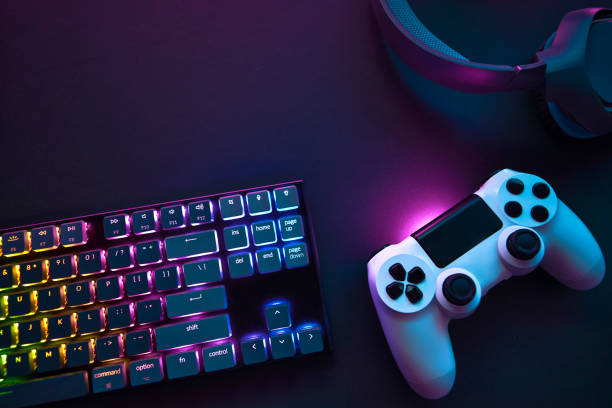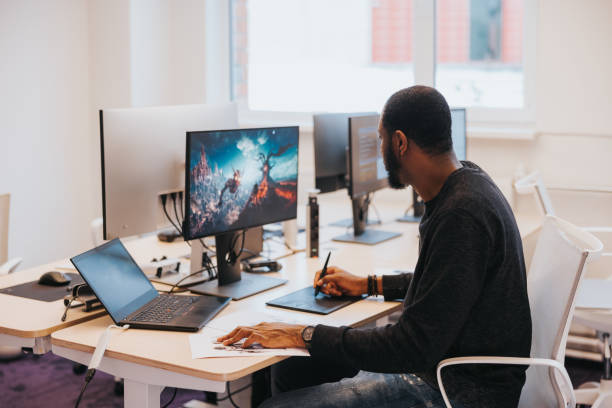Laptop Reset by Itself When Gaming disrupts gameplay and frustrates customers. These unexpected shutdowns often cease and result from overheating, electricity supply problems, or inadequate hardware specifications. As contemporary video video games are for additional resources, laptops might also additionally struggle to preserve up, main to instability and resets. Understanding the reasons and locating powerful solutions can assist gamers keep a clean gaming enjoyment and growing their devices’ lifespan.
Researchers spotlight that many gaming laptops comprise thermal control systems to lessen overheating risks. However, extended gaming durations can nonetheless place strain on additives, mainly in models with inadequate cooling answers. A look at located that laptops with bad cooling faced higher costs of sudden shutdowns as compared to human beings with superior cooling era.
To save your resets for the duration of gaming, users need to ensure the proper airflow and recollect using cooling pads. Regularly update drivers and optimize sports settings to lower average overall performance demands. Users can reveal pc temperatures using a software gadget to discover overheating early. Upgrading additives like RAM or the image card also can improve gaming balance and performance.
Why Your Laptop Resets During Gaming?
A laptop may reset during gaming for several reasons. The most common issues include:
Overheating
Heavy gaming loads the CPU and GPU, causing excessive heat buildup. If the cooling system fails to regulate temperature, the laptop may shut down or reset to avoid damage.
Insufficient Power Supply
High-performance games demand more power. A weak power adapter or faulty battery can trigger sudden resets.
Driver Issues
Outdated or corrupted drivers, particularly for the graphics card, can destabilize the system, leading to resets.
Software Conflicts
Interference from other software, such as background programs, antivirus, or system updates, may force the laptop to reset during gameplay.
Hardware Failures
Defective RAM, hard drives, or other components under heavy gaming load can cause system resets.
Power Settings
Certain laptops have aggressive power-saving modes. These settings may limit performance or cause resets when the system is overworked.
Operating System or BIOS Errors
Corrupted OS files or an outdated BIOS can result in random resets, especially under heavy load.
To resolve these issues, regularly clean the laptop, update drivers, address power supply concerns, and run hardware diagnostics.
Hardware-Specific Problems
Being too hot
This is a common reason for laptop resets, especially while playing intense video games. When the Laptop Reset by Itself When Gaming. Verify that nothing is obstructing the vents on your laptop. A cooling pad for a laptop may also be used to assist release of heat.
Dust Buildup
Regularly clean the internal parts and vents of your laptop. Dust can build up inside your laptop over time and cause issues with the cooling system.
Faulty Hardware
Laptop Reset by Itself When Gaming may reset due to a motherboard or graphics card issue. You might need to bring your laptop to a repair shop for analysis and repairs if you think there could be a hardware problem.

Software Specific Problems
Outdated drivers
Older drivers might result in unexpected restarts and stability problems. Verify that the drivers for your graphics card and other devices are current.
Corrupt files
corrupt files can prevent your laptop from working normally and even force it to reset. Do a disk scan to find and fix any broken data.
Malware
Malware can lead to several issues, such as abrupt system reboots and instability. To find and get rid of any malware, use an antivirus tool to do an extensive system scan.
Insufficient RAM or Storage
If the computer lacks ok RAM or has constrained garage space, it can struggle to deal with the demands of superior video games. This can result in a gadget reset because the pc fails to allocate assets effectively.
Symptoms of Insufficient RAM/Storage
- The laptop turns slow or unresponsive in the course of gameplay.
- Games freeze, then reset.
- Storage space is close to its full potential.
Solution
Upgrade RAM Install additional RAM to improve gaming performance and reduce device load. Free up storage Delete pointless documents or flow large files to an outside power. Check digital memory settings: Adjust digital memory size if needed.
How to Prevent Laptop Reset by Itself When Gaming Resets
To stop your laptop from resetting during gaming, try a few simple fixes.
- First, clean the vents and fans to prevent overheating, and use a cooling pad for better airflow.
- Update your drivers for the graphics and chipset to keep things running smoothly.
- Make sure your power settings are on high performance to meet gaming demands.
- Run checks on your RAM and storage to catch any hardware issues.
- If needed, upgrade your cooling, add more RAM, or switch to an SSD.
- Close any extra programs to avoid software conflicts.
Finally, update your BIOS and operating system to stay current and stable.
Operating System (OS) Issues
Slow performance
Excessive background processes: Close unnecessary programs and services. Disk Defragment: Defragment your hard drive, scan for malware, and remove malware. Insufficient RAM Consider upgrading your RAM.
Frequent crashes or freezes
Outdated drivers: Update your device drivers, especially for graphics and network adapters. Corrupt system files Run the System File Checker scan. Overheating Ensure proper cooling and clean your laptop’s vents Hardware failures: Check your hardware components for problems.
Blue screen of death
Driver problems Update or rollback drivers. Hardware problems Check for faulty components. System file corruption: Run an SFC scan.
Recent software changes Undo recent installations or updates.
Startup problems
Malware Scan for and remove malware.
Use the Bad Boot Sector Boot Repair Tool.
Hardware failures Check for problems with your hard drive or motherboard. Recent software changes Undo recent installations or updates.
Error Messages
Read the error message. It often provides clues about the problem. Search online for solutions or troubleshooting guides.
Contact technical support: Contact the manufacturer or software developer.
Software Disputes
Uninstall conflicting software Remove programs that are causing problems. Update software: Make sure all software is up to date. Use compatibility mode Run older programs in compatibility mode. Additional tips Back up your data regularly This will help you recover in case of data loss. Keep your OS updated: Install security patches and updates.
conclusion
Laptops reset during gaming due to overheating, power issues, or weak hardware. Intense gaming raises heat levels that overwhelm the cooling system, causing shutdowns. High-performance games require more power, and a weak power supply triggers resets. Dust buildup and faulty components like the motherboard or graphics card also cause resets.
To stop resets, clean vents, improve airflow with a cooling pad, and update drivers. Upgrade RAM or storage to handle gaming demands. Monitor temperature, resolve software conflicts, and run diagnostics to keep your system stable while gaming.

